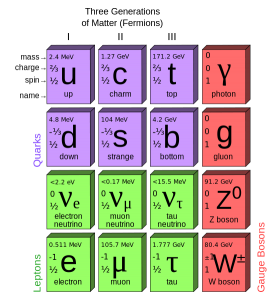When it comes to particle physics … [m]easuring something once is meaningless because of the high degree of uncertainty involved in such exotic, small systems. Scientists rely on taking measurements over and over again — enough times to dismiss the chance of a fluke.
— Moskowitz (2011): Is the New Physics Here? Atom Smashers Get an Antimatter Surprise in LiveScience
New research, out of the Large Haldron Collider in Switzerland, shows a 0.8% difference in the way matter and antimatter particles behave. This small difference could go a long way in explaining why the universe is made up mostly of matter today, even though in the beginning there were about equal amounts of matter and antimatter. It would mean that the current, best theory describing particle physics, the Standard Model, needs some significant tweaking.

0.8% is small, but significant. How confident are the physicists that their measurements are accurate? Well, the more measurements you take the more confident you can be in your average result, though you can never be 100% certain. The LHC scientists did enough measurements that they could calculate, statistically, that there is only a 0.05% chance that their measurement is wrong.